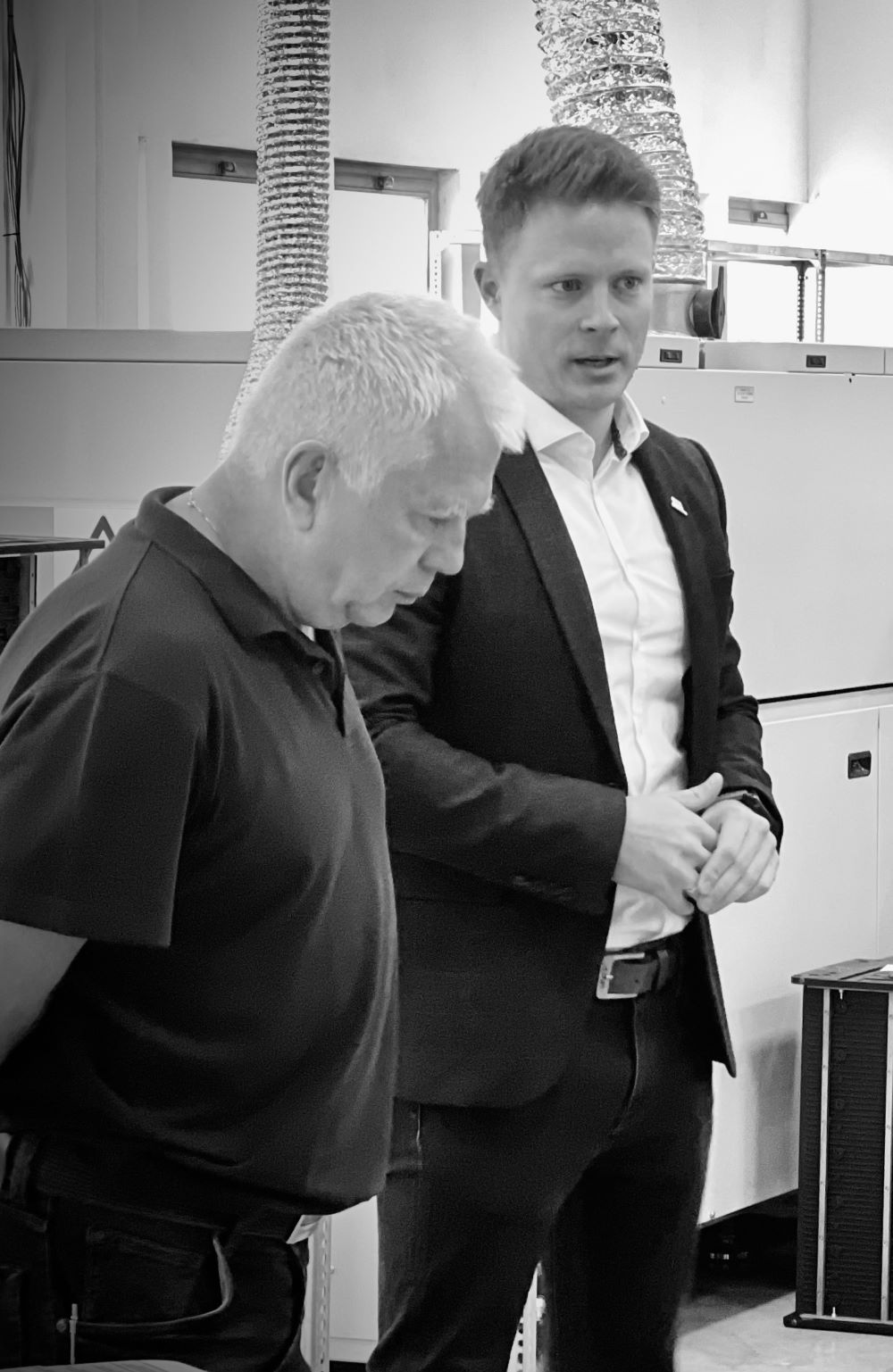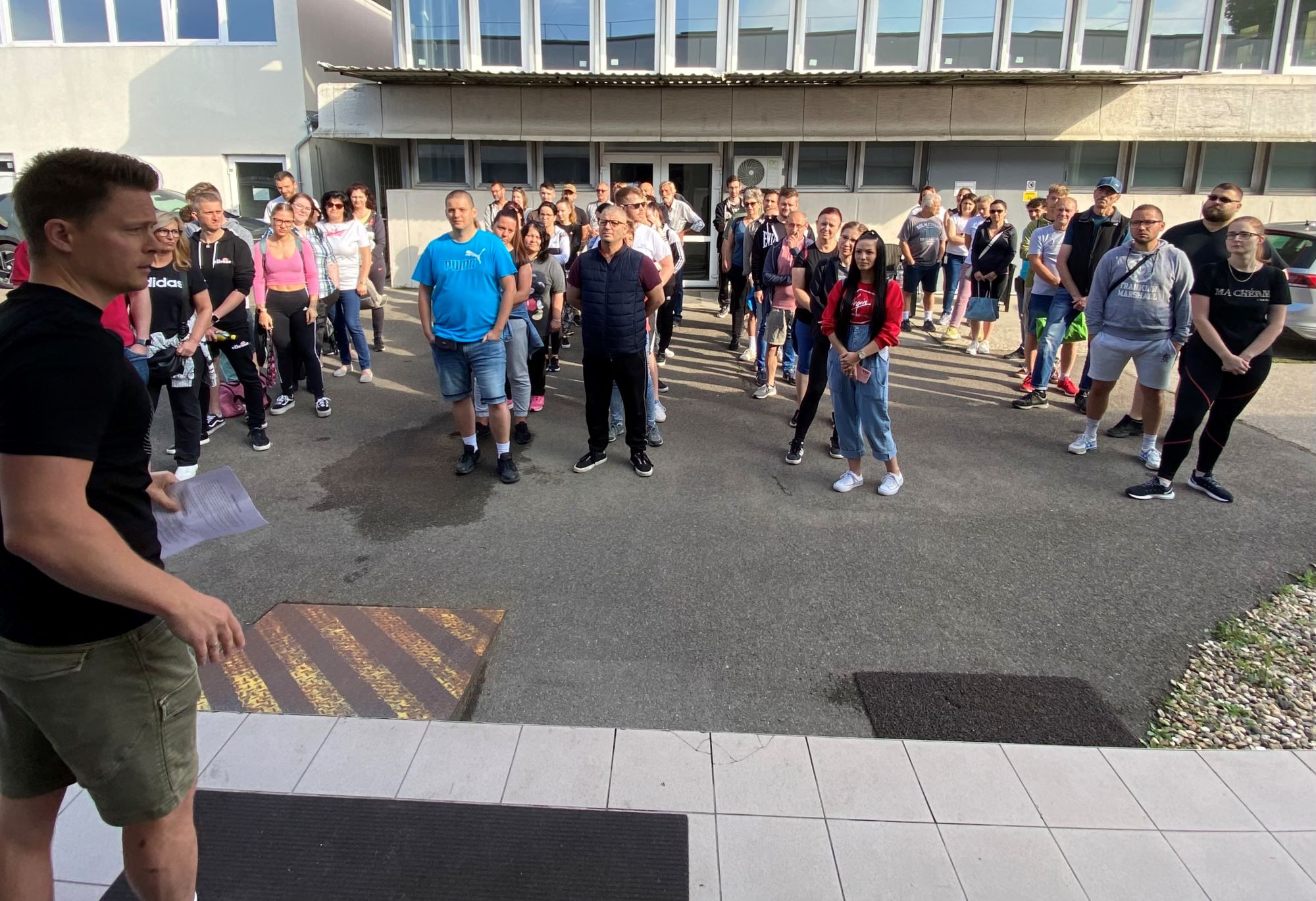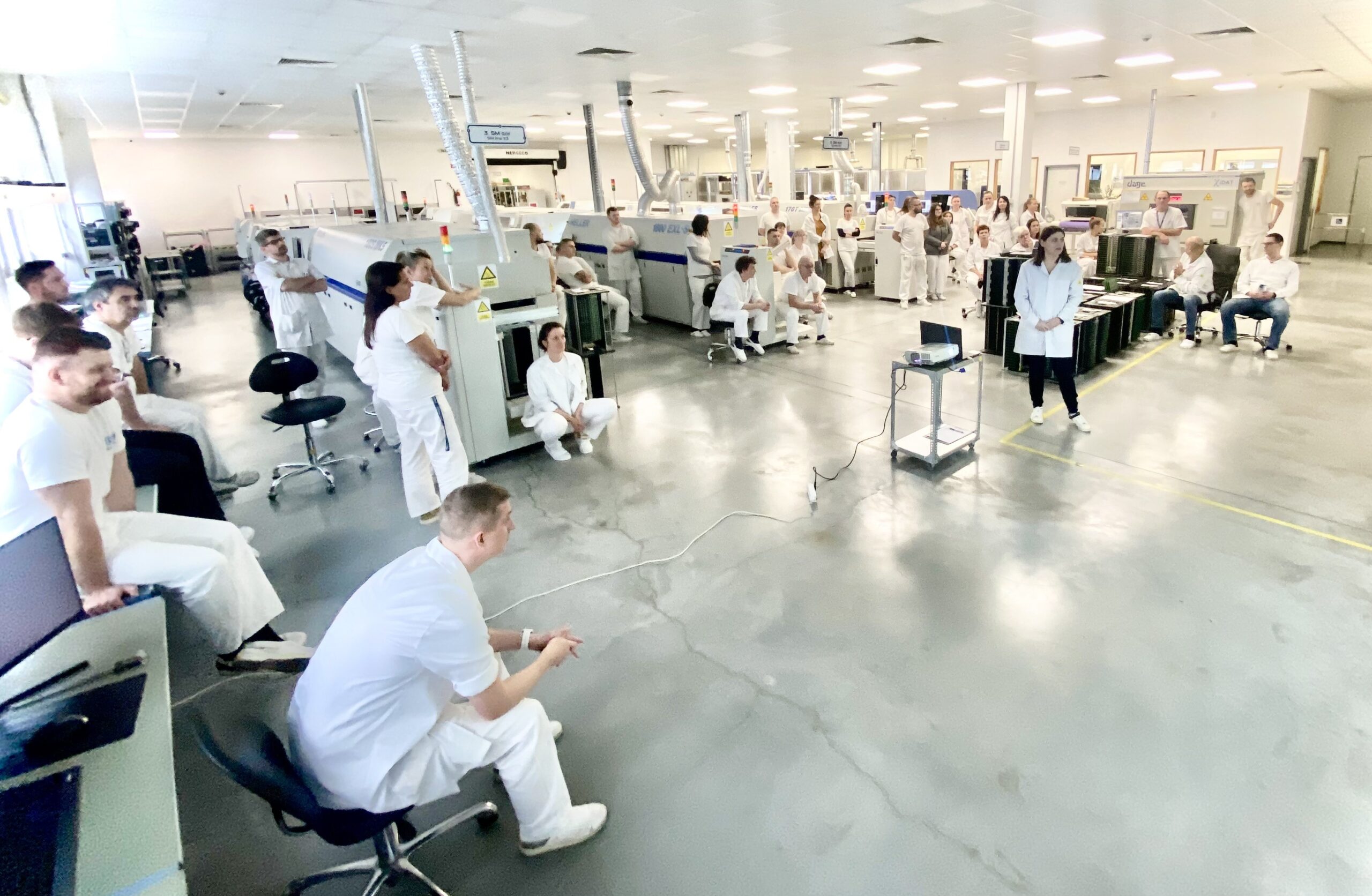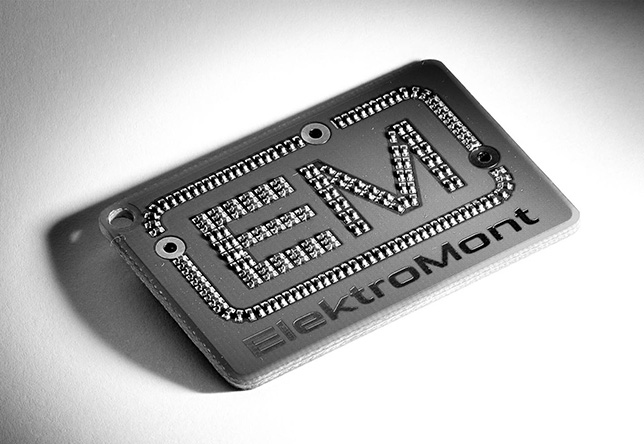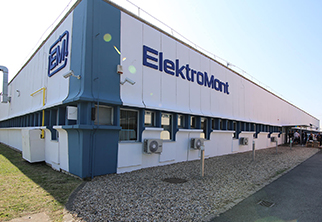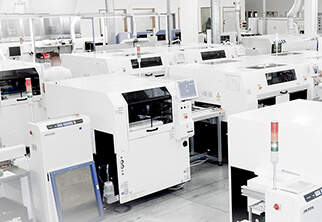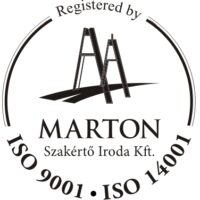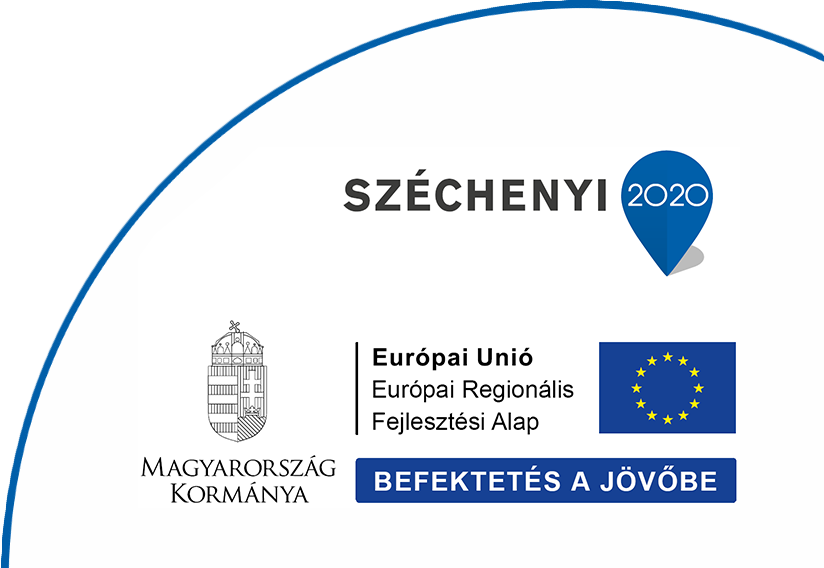Generational Change
Succession Planning
“Basically, two factors initiated the generational change process. On one hand, the passing of time, and on the other hand, the fact that ElektroMont had already reached such a size where its future had to be responsibly planned for,” mentions Balázs. Megyó adds: “The generational change at ElektroMont was not the result of a sudden decision, but a long, conscious process.”
In a family business, it would be natural for the next generation to take over the baton, but none of the founders’ children wanted to continue this path. The owners therefore had to look for an alternative solution.
In many similar situations, management is handed over by involving external professionals. However, Megyó and Balázs insisted on their previous traditions: they looked for successors within the company. They believed that colleagues who had proven their loyalty and professional competence over many years could provide a strong foundation for future leadership. “They not only knew the company’s operations and processes, but also had the courage to express their independent opinions – which is a key leadership quality,” emphasized Megyó.
“Initially, we didn’t know at what pace the change could take place. Therefore, we organized several discussions and team-building programs to identify those who were capable and sufficiently motivated for succession,” recalls Balázs.
The choice fell on two colleagues who had been working at the company for a long time: Imre Papp (Imi), who joined in 2006, and Péter Rozs (Peti), who had been with the company since 2012.
The Announcement and the First Challenges
The founders soon discussed their decision with the colleagues involved, who welcomed the change and took on the new challenges. At the end of 2018, their appointment was announced within the company, and in 2019 the generational change process officially began, which initiated numerous changes.
“Generational change is always risky. Especially when the predecessor expects the successors to do everything exactly as they did themselves,” believes Balázs. However, neither he nor Megyó considered this expectation realistic, so instead, they set frameworks and guidelines. This ensured that the new leaders could incorporate their own perspectives into the company’s operations.
Meanwhile, the owners did not completely step back: to this day, they are actively involved in the company’s life, although their role is gradually decreasing and becoming more supportive and advisory in nature.
Internal succession brought numerous advantages: the organization found it easier to accept the new leaders, as they already knew the colleagues, processes, and responsibilities. In addition, they had the necessary industry experience, technological and market knowledge, as well as a professional network – so they did not have to prove themselves as outsiders.
Nevertheless, the process was not completely without risks. Becoming a leader comes with enormous responsibility, especially when someone emerges from among their direct colleagues. This can easily lead to conflicts or even departures. The founders also had to consider that decision-making was no longer just between the two of them: the circle expanded, and with it, the dynamics changed.
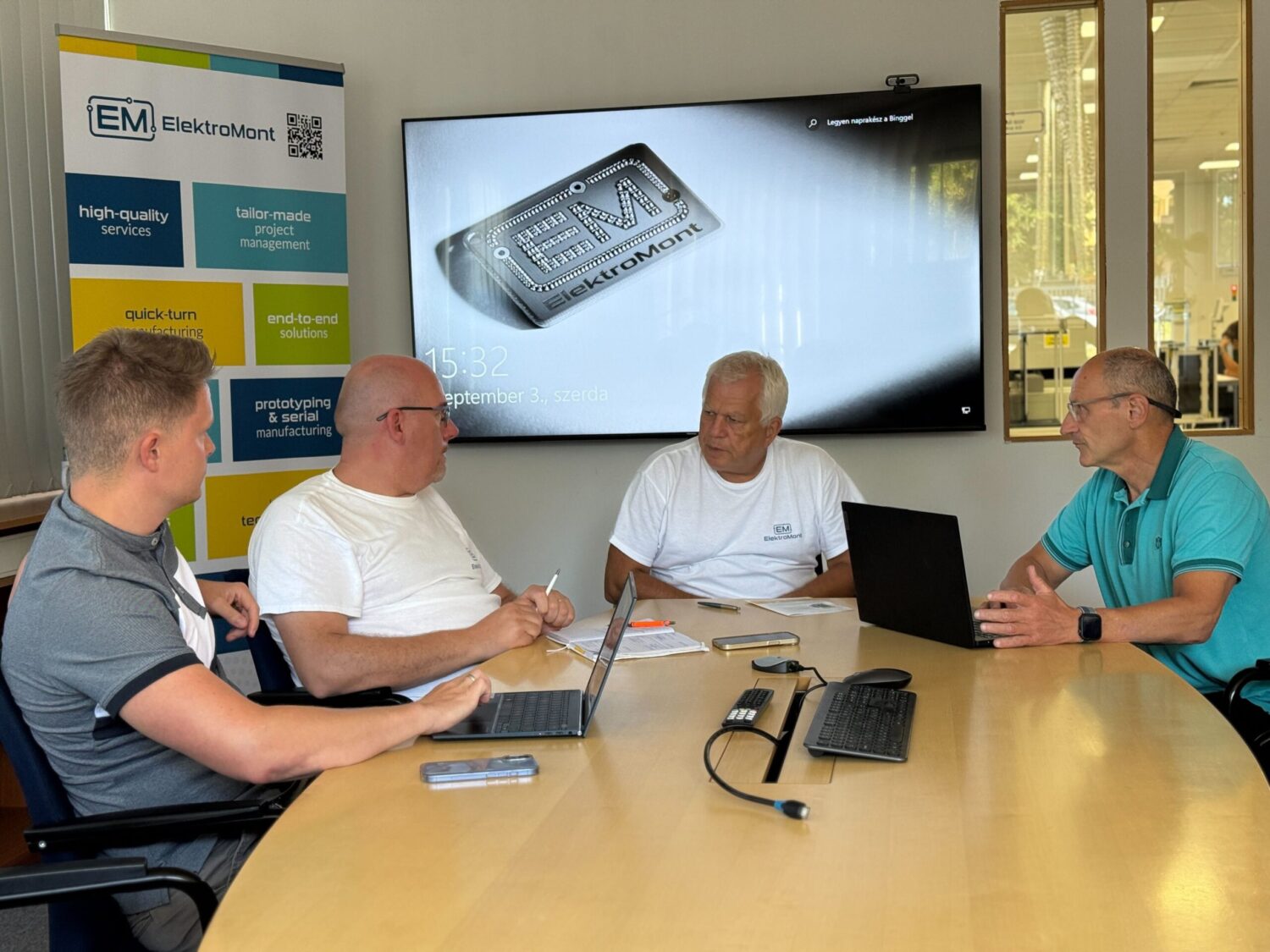
A New Perspective in Management
Generational change meant not only personnel changes but also a shift in leadership mindset.
While the founders led the company more intuitively, the new generation works more consciously, in a more regulated manner, building on organization. “We retained the processes that were already working well and efficiently and focused on the areas where we saw shortcomings. I don’t think the mindset has fundamentally changed; rather, we complemented it,” says Imi.
Although ElektroMont’s internal processes had always been highly organized, but they were often based on individual agreements and personal solutions. However, the new leaders committed to transparency and consistency, thus consciously striving to ensure that all company processes operate efficiently within appropriate frameworks. This not only supported growth but also strengthened the company’s organizational culture.
At the same time, the new leaders learned a lot from their predecessors: they still consider the preservation of human values and treating colleagues as partners to be fundamentally important. They strive to maintain a family-like atmosphere, but due to growth, they implement this within more regulated frameworks.
The transfer of responsibility was carried out as a gradual, carefully planned process: the founders step by step involved the new leaders in decision-making, increasing their expectations and responsibilities along the way. In 2022, the deputy CEO position was created, which was the first significant milestone. The next major step came in 2023. From that time, the company was managed by the new three-member executive team (Megyó, Imi, and Peti), with Imi and Peti also joining as co-owners, clearly expressing their long-term commitment to ElektroMont’s future.
Results and Experiences
The impact of the new leadership approach soon became visible. More and more highly skilled professionals joined the company, regularity and control strengthened, information flow improved, and personal example received greater emphasis.
Consciousness was also reflected in the numbers: the 2019 staff size has nearly doubled by now, and revenue has multiplied many times over. The company has entered a dynamically growing path, while the organizational culture has also continuously developed.
As Megyó puts it: “You never stop learning.” Over the past years, the younger leaders have grown tremendously, and in time, they too will pass on the baton. The results already confirm the decision: numerous new clients and projects have been won, the company is expanding steadily, and its financial indicators are continuously improving. All this proves that the generational change was not only successfully carried out but also brought fresh momentum into ElektroMont’s life, from which both the organization and our partners benefit.
However, generational change did not only bring positives. In the three years following the announcement, several colleagues who had previously held significant roles envisioned their future outside the company. “In the recent period, we have worked hard to find their successors internally or to bring in new professionals who could add valuable experience. Perhaps this was one of the most significant changes that occurred after the generational change,” explains Peti.
Although the major milestones of the change have been completed, the process itself is not entirely over. Both the founders and the new leaders have invested significant effort to bring the company to it’s current position. “A high degree of consciousness, a lot of patience, self-restraint, and mutual respect were neeeded to be able to say today: we can look at what we have gone through together in the past five years as a worthy example. And of course, it wasn’t just the four of us who participated in this: the entire organization actively contributed to shaping our future. We took the team through countless changes while dynamically growing,” adds Peti.
Imi concludes: “From the very beginning, change has been the only constant in our lives. We can never lean back. We must continuously develop and learn, and I firmly believe this will always bear fruit.”



